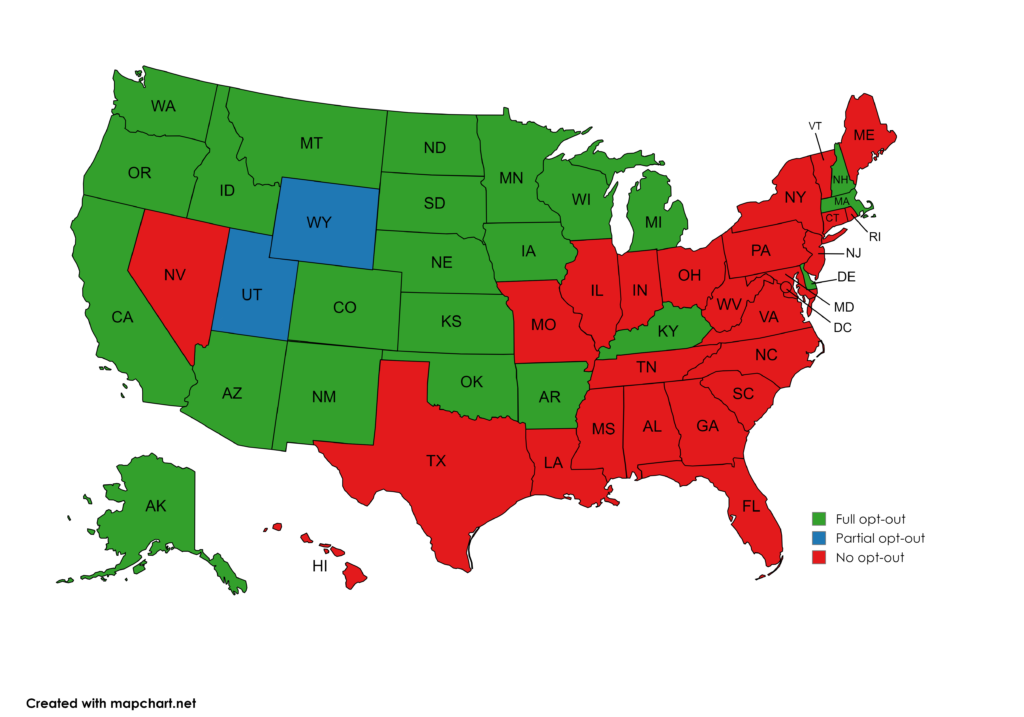Practice in Your State
New Hampshire Practice Law & Requirements
Are advanced degrees currently required?
Are advanced degrees currently required?
An applicant for initial APRN [Advanced Practice Registered Nurse], which includes CRNAs] licensure shall … [h]ave graduated with a graduate degree
earned in an accredited advanced registered nurse practitioner education program or have graduated before July 1, 2004 from an APRN education
program accredited by a national accrediting body… .” [N.H. Rev. Stat., sec. 326-B:18(I)(b)]
Out-of-State Applicants: No explicit reference; the above provision, however, appears to implicitly apply to out-of-state applicants who meet the stated
requirements.
Is there an explicit new graduate provision?
Is there an explicit new graduate provision?
[A] new graduate of an advanced nursing practice educational program may seek a once-per-lifetime temporary licensure to practice in the advanced role following verification of authorization from the certifying agency to sit for the first national certifying examination in the applicant’s specialty
area.”
“Each temporary APRN license shall expire at the earlier of … [t]he passage of 120 days; or … [t]he date on which the applicant receives either … [a] permanent APRN license, after having made timely application; or … [n]otice that the applicant failed the national certifying examination.”
“As part of the application, the applicant shall provide a statement of agreement from an APRN holding a currently unencumbered APRN license issued by the NH Board of Nursing who agrees to oversee the applicant during the period of temporary licensure.”
[New Hampshire Code of Administrative Rules, Nur 301.04(a)]
Do dentists require a permit/training to use a CRNA?
Do dentists require a permit/training to use a CRNA?

Do CRNAs have prescriptive authority?
Do CRNAs have prescriptive authority?

New DEA MATE Act Requirements
Congress has passed the MATE Act requiring all CRNAs who need to renew or are applying for a DEA license to complete a one-time training (totaling 8 hours) on managing patients with substance use disorders. View our FAQs below to learn more about this requirement and for information about our new DEA Bundle to help you meet this requirement.
FAQs
- Who is required to complete these requirements?
CRNAs renewing their DEA license or applying for an initial DEA license. - Can AANA help me fulfill these requirements?
Yes, AANA has developed a collection of CE offerings to satisfy these requirements which includes 8 Class A CE (designated as 8 pharmacology credits). This bundle will be available to stream starting June 7 but can be preordered through CKN. - When do I need to complete these requirements?
Starting on June 27, 2023, all CRNAs who are applying for a new DEA license or are renewing their DEA license. - The AANA is not listed as an approved provider. Will CE offered by the AANA meet this requirement?
Yes, through our accreditation with the American Nurses Credentialing Center (ANCC), AANA meets the requirements to offer these CE credits. - How do I report the completion of this requirement?
CRNAs will self-report completion during their DEA licensing process. CRNAs who complete DEA Bundle through the AANA will receive individual certificates documenting the completion of the training. This should be retained as proof of training.
Do Anesthesiologist Assistants (AAs) have authority to practice?
Do Anesthesiologist Assistants (AAs) have authority to practice?

Has New Hampshire opted out of the federal supervision requirement?
Has New Hampshire opted out of the federal supervision requirement?

Are physician office settings regulated in my state?
Are physician office settings regulated in my state?

State Licensure
State Licensure
CRNAs are a type of “advanced practice registered nurse.”
New Hampshire registered nurses seeking APRN licensure must meet certain educational and administrative criteria. [New Hampshire RSA, sec. 326-B:18(I)]